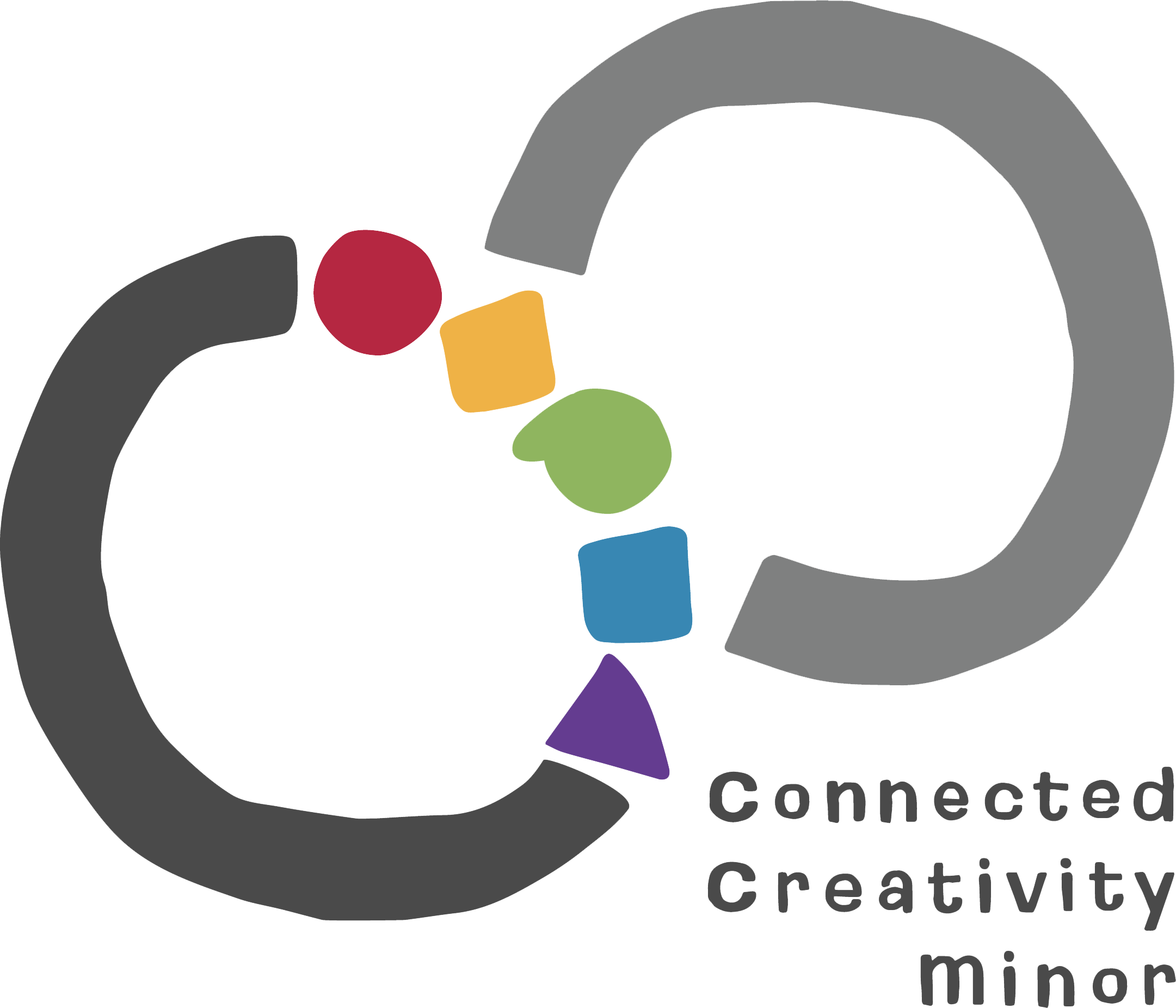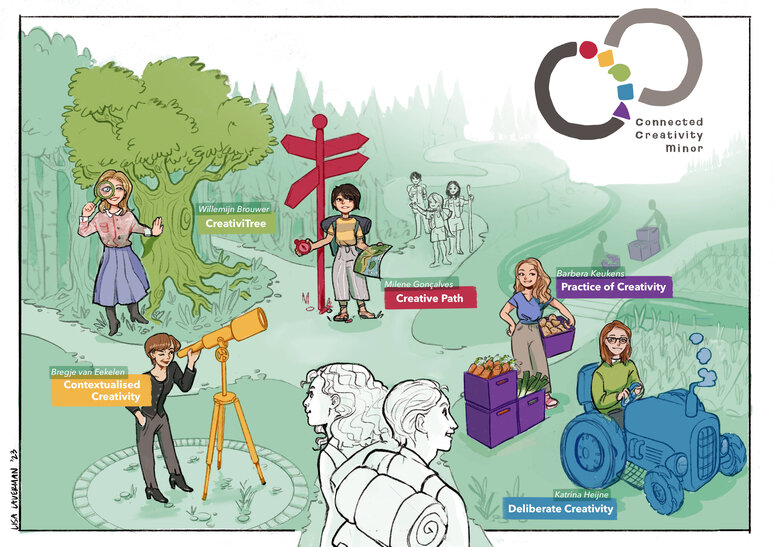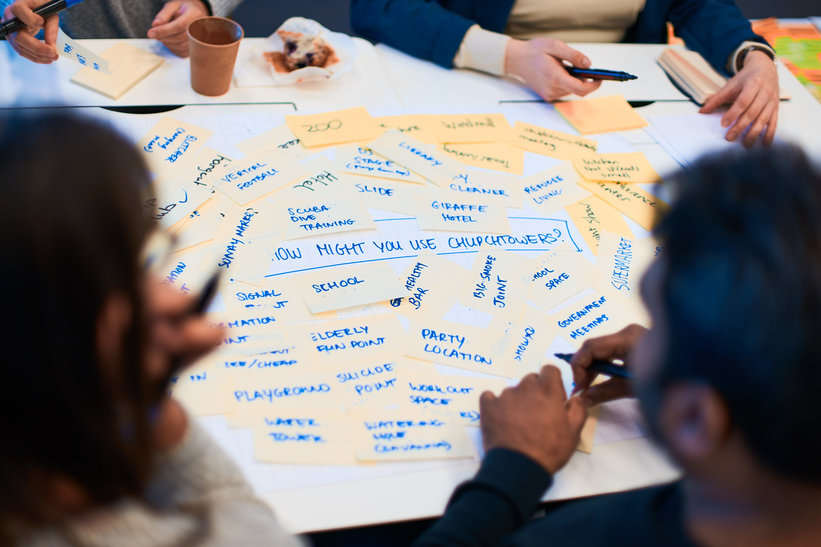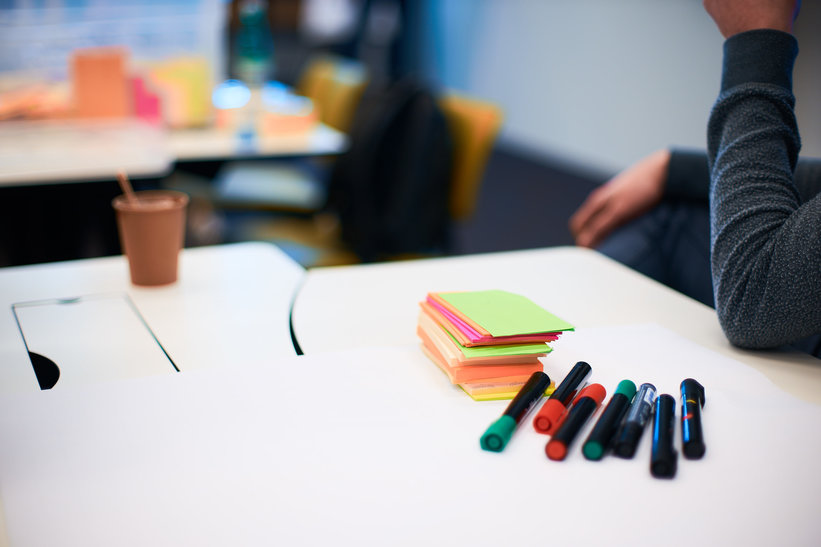Connected Creativity
IO-MI-223
Creativity is a skill in high-demand everywhere in the world, independently of the field. But for one reason or another, many people still believe that creativity is only reserved for a lucky few or that it has no place in non-artistic fields. With this minor, we will break away those myths. You will learn how to become more creative (individually, in teams and in larger contexts), gain creative confidence, apply approaches to creative processes and critically think in innovative and forward-looking ways.
When you finalise the Minor Connected Creativity, you will be able to bring a creative-leading edge to your own fields of expertise and future workplace. This is particularly important, as we consider that current and future jobs are becoming more interconnected, imbued with political, cultural, societal and technological dimensions.




Faculty of Industrial Design Engineering
ECs: 30
Language: English
Maximum participants: 60
| Non-selection minor: | |
| Selection minor: | |
Education methods
Learning activities, which include but are not limited to workshops, creative sessions, creative interventions, seminars and lots and lots of (virtual) post-its.For whom?
All disciplines are welcome in Connected Creativity. From engineering to psychology. From German literature to astrophysics. We aim for a division between students based on:
- 1/3 from the faculty of Industrial Design Engineering (TU Delft)
- 1/3 from other TU Delft faculties
- 1/3 other disciplines
What will you learn?
This minor focuses explicitly on deliberate creativity in everyday contexts. This means that we will support you in reflecting upon your knowledge and disciplines, making you aware of your own assumptions and willing to approach problems from other perspectives. We will do that by guiding you towards a structured and reflective creative process. Our focus is to provide you the creative confidence, the skills, tools and approaches that you can take with you on your future educational and career steps.
As the name indicates, the minor Connected Creativity strives to connect different disciplines in an interdisciplinary manner. The focus on interdisciplinary domains is a direct response to the need to shape our future. Most current and future challenges are dynamic, constantly changing, involving multiple stakeholders and thus, not bound to a single field of expertise. With this minor, we will connect you across disciplines: you will work in diverse teams (in terms of studies, but also expertise, age, personal character or culture). Ultimately, you will be confronted with different viewpoints and will be encouraged to use each other’s knowledge and insights to arrive at creative insights.
The minor offers:
- A creative deep dive: a week full of creative activities and team-building exercises.
- A variety of learning activities, which include but are not limited to workshops, creative sessions, creative interventions, seminars and lots and lots of (virtual) post-its.
- A way to develop knowledge, skills and attitudes required to apply deliberate creativity in order to improve your capability of, and effectiveness in, handling real-life problems and challenges.
- Exploration of topics that enable you to reflect and grow as a creative person, but also as a team member and facilitator in creative settings, in a safe and brave space.
- You will be guided in translating practice, theory and reflection on your experiences back to practice.
- Interdisciplinary collaboration with students from different studies, teaching staff, experts and real-life clients, which will support you in becoming a creative innovator.
Course overview
The minor is built up in two parts: The first quarter of 15 ECTS is block A - ‘Ignited’; and is all about the basics of Creativity. The second quarter (also 15 ECTS) is block B- ‘Electrified’; here we will dive deeper into the topic and can only be attended after participation in block A.
Register for this minor
Minors of the faculty of Industrial Design Engineering are open only for students from academic programmes in the third year of their Bachelor studies.
Students about this minor:
